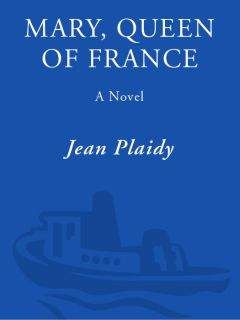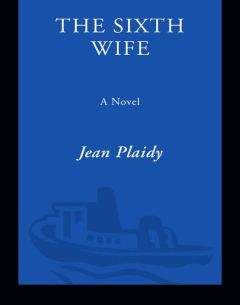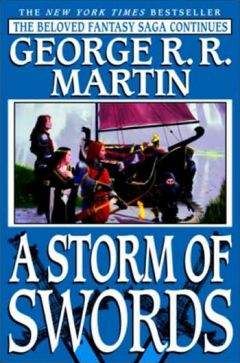Four children, mused the King, and Arthur the only one whose health gives cause for anxiety. Edward’s daughter has done her duty well.
The Queen turned to him and was smiling. She read his thoughts. She knew that he was studying the children and had been thinking: There’s time for more.
Elizabeth of York stilled the sudden resentment which rose within her. The only real desire her husband would feel would be for the aggrandizement of the throne. She was dear to him, she knew, not because of any beauty or talents she might possess, but because she was the daughter of Edward IV, and when she married him the union had brought peace to England; she had also given him children, four of whom were living.
There was tension among the spectators, and the King’s attention was now on the arena, where the battle was not going according to expectations. Rex was lying on his back while one of the mastiffs had him by the throat; the others were leaping on him, tearing his flesh, their jaws bloody.
Prince Henry had risen to his feet.
“They have beaten Rex,” he cried. “Oh, bravo . . . bravo!”
The cry was taken up among the spectators, as the body of Rex lay lifeless and the dogs continued to worry it.
The Queen leaned slightly toward the King.
“I would not have believed that the dogs could defeat the lion.”
The King did not answer, but beckoned to one of the keepers of his menagerie.
“Take the dogs away,” he said; “remove the carcass of the lion and then return to me.”
As the man bowed low and went off to obey the King’s command, an excited chatter broke out among the children.
Henry was shouting: “Did you see? Arthur, did you see . . . ?”
Arthur was pale. He murmured: “I like not these sports.”
Henry laughed at him. “I like sport better than anything in the world, and never have I seen such a battle.”
Mary asked: “What has happened to the lion?” But no one took any notice of her.
Margaret gripped Henry’s arm. “Be silent,” she whispered. “Do you not see that our father is displeased?”
Henry turned to stare at the King. “But why . . .” he began. “I should have thought it was good sport. I . . .”
The King’s stern eyes rested on his son. “Henry,” he said, “one day you will learn that what you think is of far more interest to yourself than to others.”
Henry looked puzzled, but it was impossible to check his exuberance.
The King signed to one of the keepers. “Let the bears and the ban-dogs be brought on,” he said.
The company stared aghast.
Before them in the arena scaffolds had been set up and on these hung the bodies of the four English mastiffs, the dogs which, but half an hour before, had conducted themselves so valiantly against the King’s fiercest lion.
The King silently watched the assembly. His chief counselors, Dudley and Empson, watched also.
The farce was ended, but everyone should have learned the lesson it was intended to convey.
The dogs had been sentenced to death for treason. They had dared to destroy Rex the lion. They were traitors.
The King had ordered the sentence to be read before the ropes were put about the animals’ necks. Then he had said in his low somber voice: “So perish all traitors!”
His subjects stared at the writhing dogs, but it was of the King they were thinking.
Indeed he must be a man beset by fears since he could not resist pointing out to them the fate of those who attempted to overcome the power of kings.
Henry rose suddenly and, as he left his seat, his family and immediate circle prepared to follow him.
The games were over for that day.
The children had escaped to the privy garden. It was pleasant out of doors because a breeze was beginning to blow off the river.
They were unusually silent, for the hanging of the four mastiffs had subdued them. Here in this pleasant garden, in which the scent of roses was very strong, they often gathered when their parents were in residence at the Palace of the Tower of London. They delighted now in its familiarity because the scene they had witnessed had been unexpected, and it was comforting to be in a place they knew so well. This they looked upon as their own little garden; here they felt shut away from the ceremony which was such a large part of their lives. The great walls of the Cradle Tower and the Well Tower formed a bastion against too curious eyes. Here they could forget they were Princes and Princesses and be children.
Henry broke the silence. “But why!” he demanded. “Those four brave mastiffs . . . traitors! How could they be traitors?”
Mary began to cry. She loved dogs and she had been delighted when the four had beaten the cruel lion. Had she not been told so often that Princesses do not cry in public she would have burst into tears when she saw the ropes being put about their necks.
“Hush, Mary,” said Margaret, stern Margaret, who kept them in order as though she were the eldest. Someone, Margaret often pointed out, had to keep the family in order, and Arthur was useless in that respect.
Mary obediently stopped crying, but it was clear that she could not forget the mastiffs.
Arthur turned to Henry. He looked almost as old as his father in that moment. “It is all so easy to understand,” he said.
“But I do not understand,” cried Henry hotly.
“That is because you are but a boy for all your arrogance,” Margaret retorted.
“Do not call me a boy. I am as tall as Arthur.”
“So you may be, but that does not make you grown up,” Margaret told him.
Arthur said almost wearily: “Our father had the dogs hanged because they had used their strength against Rex. Rex was the king of my father’s beasts, and Rex means King. Our father was showing all those people what happens to those who pit their strength against kings.”
“But the dogs were sent into the arena to fight,” persisted Henry. “It makes no sense.”
“The ways of kings do not always appear to make sense,” answered Arthur.
“But I would have good sense prevail always.”
“I . . . I . . . I!” murmured Margaret. “You use that word more than any other, I do declare.”
“Should not a king show his subjects that he is a man of good sense then?” Henry persisted.
“No,” answered Arthur, “only that he is a king to be feared.”
“I do not want the dogs to be dead,” cried Mary, and began to sob loudly.
Margaret knelt down and, taking a kerchief from her pocket, wiped Mary’s tears away. “Have you not been told that it is unseemly for a Princess to cry like a peasant?”
“But they killed the dogs. They put ropes round their necks. They killed . . .”
“I see,” said Henry in his resonant voice, “that all traitors should be hanged, but . . .”
“Let us talk of something else,” commanded Margaret. “I must stop this child making such a noise. Now, Mary, what will your new sister say when she comes here and finds you such a crybaby?”
Mary stopped crying; it was obvious that she had forgotten the death of the dogs and was thinking of her new sister.
“Just think,” went on Margaret, “she is coming all the way across the sea to be our sister. So instead of four of us there’ll be five.”
Arthur turned away from the group, pretending to examine one of the roses. He was embarrassed by this talk of his imminent marriage. He was a great deal more uneasy about it than he cared to admit.
“Will she be big like you?” asked Mary, peering into Margaret’s face.
“Bigger. She is older.”
“As old as our father?”
“Do not be foolish. But she is older than Arthur.”
“Then she must be very old.”
“Arthur is not really very old,” put in Henry. “I am nearly as old as Arthur.”
“Nonsense,” said Margaret, “you’re five years younger.”
“In five years then I shall have a marriage.”
Margaret said sharply: “You are destined for the Church, Henry. That means that you’ll have no marriage.”
“I shall if I want one,” retorted Henry; his small eyes narrowed suddenly in his plump, dimpled face.
“Don’t talk so foolishly.”
“Arthur may not either,” went on Henry, who did not like the idea of his brother’s having something which he could not. “It seems to me that his Spaniard is a long time coming.”
Arthur turned to face them all. He said: “Her ships have met with disaster. It is a long and hazardous journey she has to make.”
“Still,” said Henry, “we heard a long time ago that she had set out . . . and still she does not come.”
“There are storms in the Bay of Biscay,” Margaret put in.
“Perhaps,” cried Henry spitefully, “she’ll be drowned. Then you won’t have a marriage either.”
Arthur nodded in his mild way; but he did not look in the least perturbed by this possibility.
Poor Arthur, thought the wise Margaret, he is not looking forward with any great pleasure to being a husband.
It occurred to her that the subject of the Spanish marriage was not really a very much happier topic than that of the mastiffs.
“I’m going to have a game of tennis,”said Henry suddenly. That meant that he was leaving the family party—because Arthur was not good enough to play with him. Henry would go and find the sprightliest of young boys, and doubtless he would win, not only because he hated to lose and his opponents knew this, but because he really did excel at all games. Arthur would shut himself into his own apartments to read or brood. Margaret would hand Mary over to her nurses, and she herself would do a little embroidery with some chosen companions, chatting lightly but thinking of Arthur’s marriage with the Infanta of Spain and wondering what further marriages were being arranged. It was almost certain that her own would be the next. She would not be as fortunate as Arthur, who at least would stay at home. She believed she would have to go into the wild country beyond the Border.
The Queen took an early opportunity of retiring to her own apartments. The spectacle had disgusted and alarmed her. She was shocked that her husband should have so betrayed himself. She had not dared to glance at him, sitting there stonily staring ahead at those struggling bodies, but she knew exactly how he would be looking. His lips would be tightly compressed; his eyes narrow and calcculating. She understood more of his nature than he would have believed possible. She had seen much, during her lifetime, of the terrible fascination a crown had for some men and women; she had seen them face disaster and death to win and then retain it.
Yet Henry, her husband, did not understand this. He did not understand her at all; he made no attempt to. He was a man shut in with his emotions, and shared them with none. For two things only did he betray an overwhelming passion: for the crown and for gold; and these she knew he loved with an intensity he would never feel for anything or anyone else.
She herself was no longer young, having last February passed her thirty-fifth birthday; and during those thirty-five years what she had lacked most was security.
Her handsome father had doted on her; he had planned a grand marriage for her, and when she was nine years old she had been affianced to Charles, who was the eldest son of Louis XI, and she remembered how at that time everyone had called her Madame la Dauphine. She remembered the French lessons she had taken at that time. It was imperative, her father had said, that she speak fluently the language of the country which would one day be her home. She had also learned to write and speak Spanish.
Thinking of those early days, she said to herself: “The latter will be useful when the Infanta arrives . . . if the Infanta ever does arrive.”
Royal marriages! How could one be sure they would ever take place until one witnessed the actual ceremony itself! Her marriage to the Dauphin had certainly not; she remembered the occasion when the news had arrived at the Palace of Westminster that Louis was seeking the hand of Margaret of Austria for his son.
Elizabeth could recall her father’s rage; the hot red blood rushing to his face and the whites of his eyes. He had died soon after—some said of the rage this news had aroused in him.
She had been afraid of such emotion ever since. For that was the beginning of trouble. Her father dead, her uncle taking the crown, herself with her mother and some other members of the family taking refuge in sanctuary, where her little brothers were taken from them to be lodged in the Tower—this Tower in which she now sat. Somewhere in this place were buried the bodies of those two young princes who had disappeared mysteriously from their lodgings. She could remember them so well, her little brothers whom she had loved so dearly. What had happened to them? They had stood in the way to the throne. In the way of her uncle Richard? In the way of her husband, Henry?
She dared not think of their fate.
It had all happened so long ago. Her uncle Richard, who had once thought of marrying her, had met his death at Bosworth Field; the Tudor dynasty had begun.
It was this matter of hanging the mastiffs which had made her brood on the past. It was this betrayal of her husband’s fear, of his determination to show all those who might rise against him what they could expect at his hands.
It was thus that Henry found her. He had come to her, she knew, to discover her feelings regarding the affair in the arena, though he would not ask. He never asked her advice or opinion. He was determined that she should remain his consort only. This desire to preserve his own supremacy was always present. Elizabeth knew it for a weakness which he attempted to hide by a show of arrogance.
“You are resting?” he asked.
He had come to her unheralded. She, who remembered the pageantry of royalty with which her father had surrounded himself, even now was a little surprised by this.
She gave him her hand which he kissed without much grace.
“The heat in the arena was overpowering,” she said. “At one time I was afraid Arthur would be overcome by it.”
The King frowned. “The boy’s health leaves much to be desired,” he said.
The Queen agreed. She murmured: “But young Henry grows more and more like my father every day.”
The King was not displeased; he liked to be reminded that his son’s maternal grandfather was Edward IV. But he did not wish Elizabeth to realize the extent of his pride, so he said: “Let us hope he does not inherit your father’s vices.”
“He had many virtues,” Elizabeth said quietly.
“His virtues gave him the strength to fight for the throne; they brought men rallying to his side; but it was his vices which killed him. Let us hope young Henry will not be so fond of good food and wine, and most of all, women.”
“Henry will take care of himself. It is Arthur on whose account I am so concerned.”
“Soon the Infanta will be here, the marriage celebrated.” Henry rubbed his hands together and his grave face was illumined suddenly by a smile.





